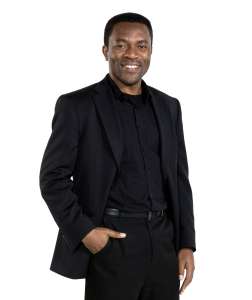Gordon Divine (Dee) Asaah
PhD in Reading/Writing/Literacy University of Pennsylvania ’22 (expected)
Graduate Certificate in Social, Cognitive and Affective Neuroscience, University of Pennsylvania ‘19
“I am a writer, educator/researcher, and filmmaker. I am the co-founder and executive director of Educate a Child in Africa, a Cameroon-headquartered nonprofit that supports student learning through multimodal play-and-learn activities and by forging symbiotic coalitions between teachers, parents, and communities.
I am also a Ph.D. student in the Literacy, Culture, and International Education Division at the Graduate School of Education. My research interests are interdisciplinary, straddling multimodal storytelling (in particular, filmmaking, creative writing, theatre arts); multiliteracies; international educational development; and the neuroscience of learning and development. My career plan includes a professorship in education while working internationally as an educator-researcher in educational development.
I was drawn to neuroscience because I wanted to understand how historical, social, and cultural factors–such as socioeconomic status, the environment (home, school, work, neighborhoods, etc.), poverty, multilingualism, health, etc.–impact brain function and learning. I also wanted to know what is actually happening inside the human brain during the process of learning and development–how the self is constructed neurologically. Although I work with intergenerational populations (children, adolescents, parents, and grandparents), the bulk of my dissertation focuses on adolescents. I have a better understanding of my students’ behavior because I have a sense of the drastic neurophysiological changes taking place in their brains as a natural result of growth. SCAN has also strengthened my understanding of critical and sensitive periods, learning and memory, language production and comprehension; critical periods in language learning; and the neuroscience of dyslexia, SES and adversity.
I have attended education conferences internationally where neuroscience research is used to justify the creation of educational interventions. What a satisfying feeling to finally understand what in the world they are talking about!
Pursuing the SCAN program was the riskiest and one of the most rewarding and satisfying decisions I have made as a PhD student. Risky because it pushed me out of my comfort zone, challenging me to think, learn, see, hear, know, and be in the world differently. I am a better researcher/scholar and person for it. It has given me a deep and nuanced understanding of learning and development.”
